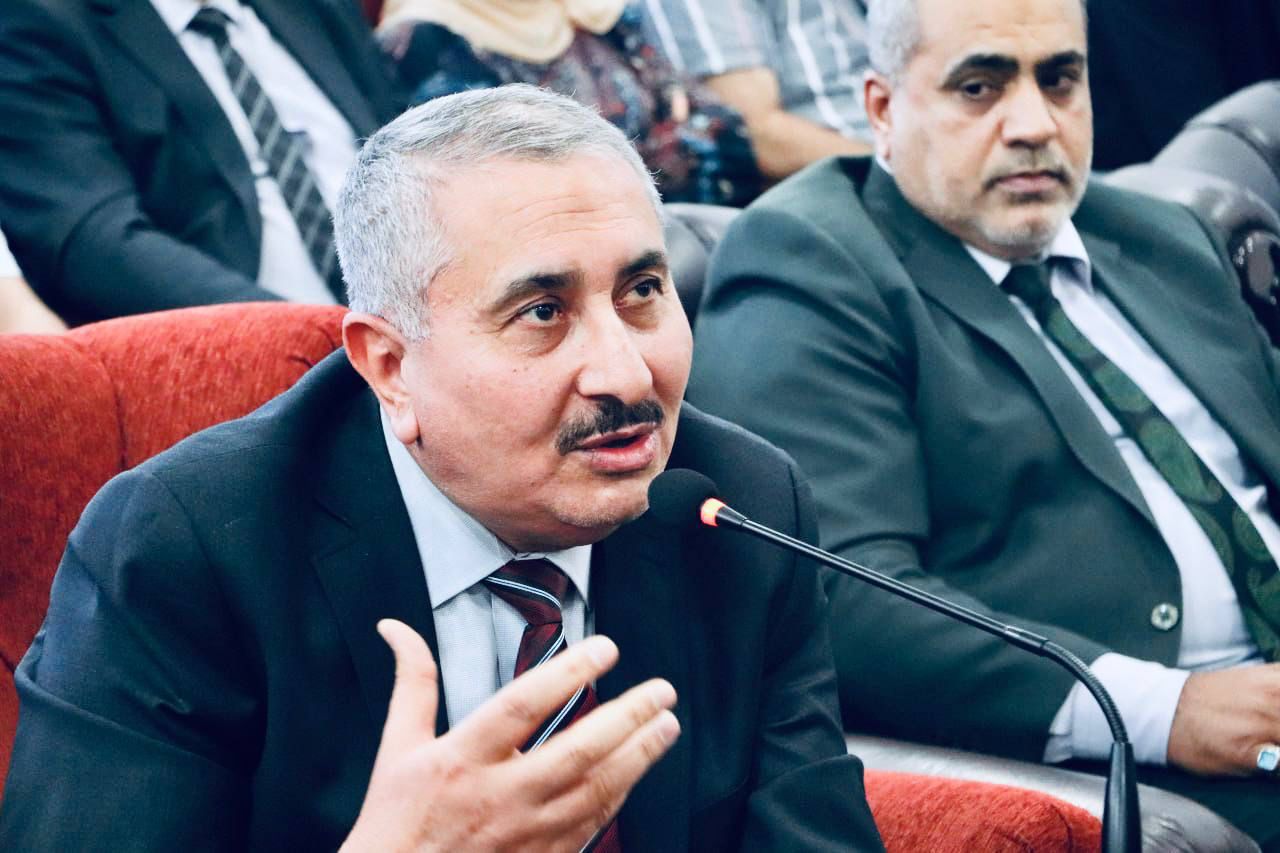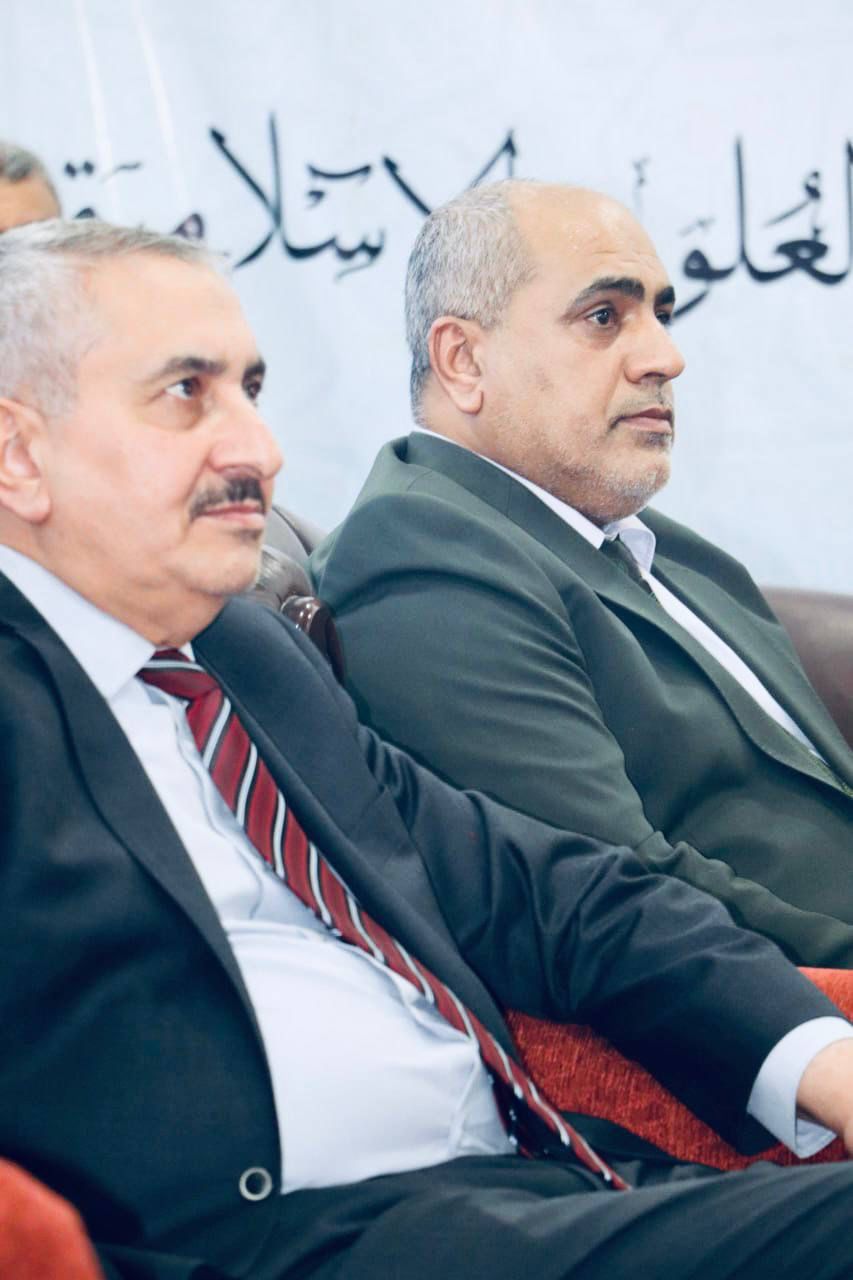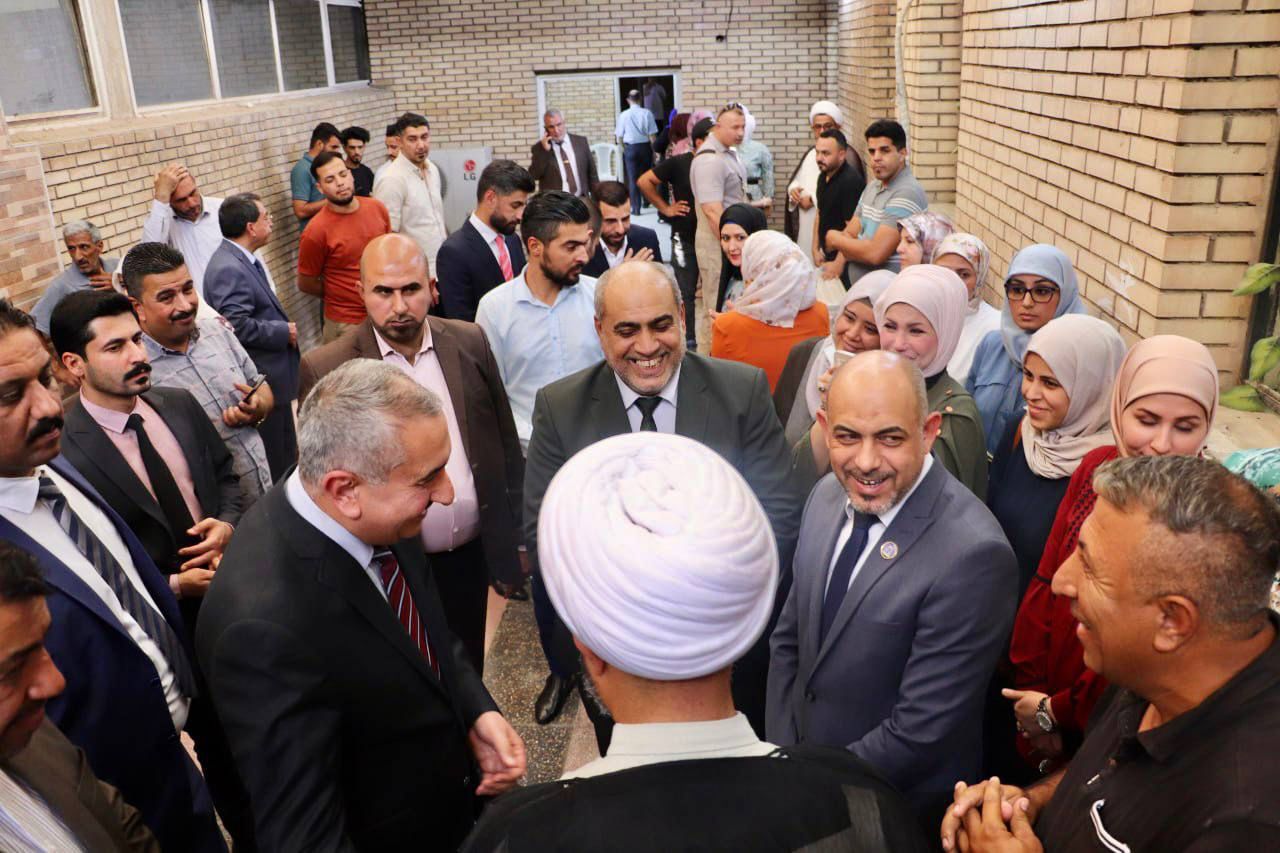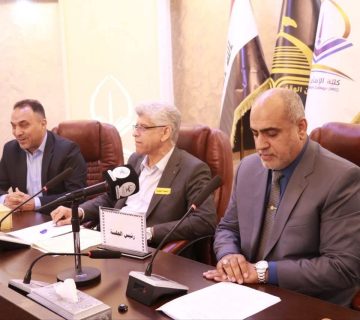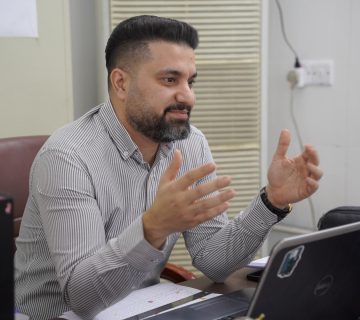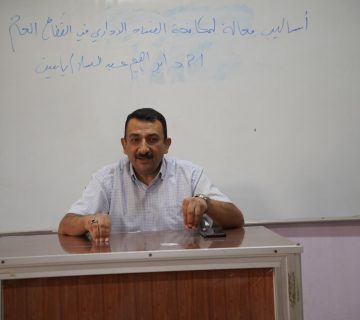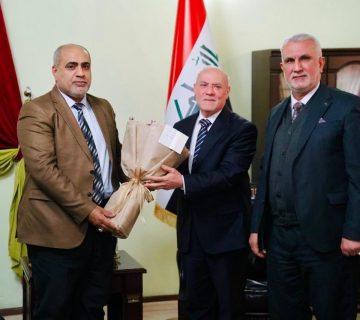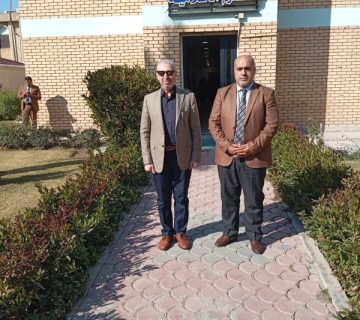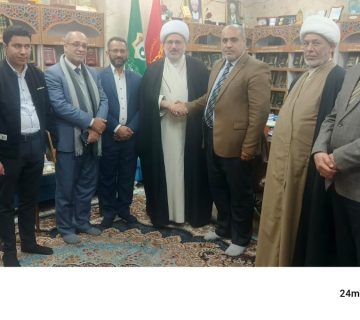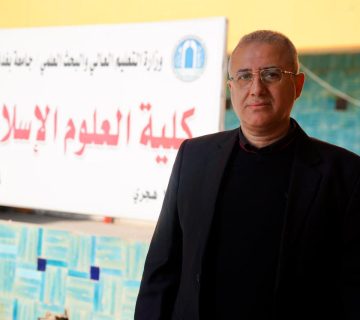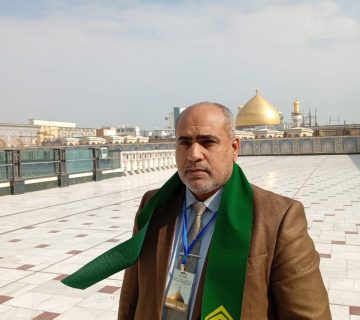The College of Islamic Sciences at the University of Baghdad organized a workshop on the sanctity of the Holy Quran, under the direct guidance of the Rector of the University of Baghdad, Professor Dr. Munir Al-Saadi, and under the supervision of the Dean of the College, Professor Dr. Naima Dahsh Farhan. This workshop was held in response to the insult against the Holy Quran in Sweden, where a Swedish extremist of Iraqi origin burned a copy of the Noble Quran in front of a mosque in Stockholm.
The workshop, which took place on Wednesday, was attended by President Al-Saadi, several university officials, as well as religious and academic figures. It consisted of four main sessions, with Professor Dr. Haider Zamil moderating. The first session discussed the sanctity of the Holy Quran in form and content, presented by Professor Dr. Muhanad Mohammed Saleh Al-Hamdani. The second session examined attempts to undermine the sanctity of the Holy Quran from a historical perspective, presented by Professor Dr. Khalil Hassan Al-Zarkani. The third session explored the causes and factors contributing to undermining the sanctity of the Holy Quran, presented by Dr. Arkan Rahim Jaber. The final session delved into the portrayal of the Holy Quran in the Western context through an objective study, presented by Dr. Halim Abbas Al-Fatlawi.
During his intervention regarding the insult against the Holy Quran, Dr. Al-Saadi emphasized that the incident should lead us to reflect on and contemplate the Holy Quran. He called for focusing on the scientific predictions mentioned in the Holy Quran, which have been discovered during the era of technological advancement.
The presenters at the workshop recommended the necessity of organizing an international scientific conference under the sponsorship of the University of Baghdad, focusing on the scientific discoveries in the Holy Quran. They highlighted the importance of fortifying the minds of university students from deviant practices such as atheism, drug abuse, sexual deviation, and same-sex marriage. This can be achieved by emphasizing Quranic concepts in curricula, organizing lectures, seminars, and workshops, and promoting contemplation and reflection on the Holy Quran to discover scientific truths.
